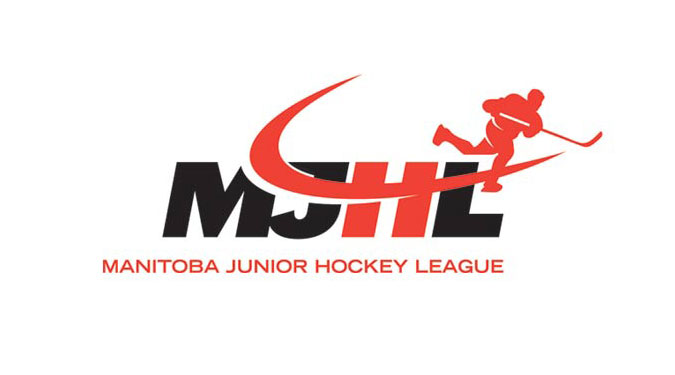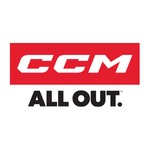By Derek Holtom
MJHL Web Correspondent
The regular season is in the books, and we bid farewell to shootouts, the Neepawa Natives, Dauphin Kings and the Waywayseecappo Wolverines. Eight teams remain, and with so much parity in the MJHL this season, the battle for the 2018 Turnbull Cup looks to be as competitive and intense as ever.
Here’s a breakdown of the four first-round series, and what fans might expect in the coming two weeks.
No. 8 Swan Valley (28-25-6-1) versus No. 1 Steinbach (48-8-2-2)
The Steinbach Pistons are on a mission to win the MJHL title. Last year they had the No. 1 seed but were upended in the second round by Portage. Swan Valley returns to the post-season after a one-year absence, and faces an extremely uphill battle. The last time the Stampeders actually beat the Pistons was back in 2013. They are 0-27-4-1 in that stretch, including 0-5-1-0 this year.
The Pistons are stacked with talent – seven players with 20 or more goals, and two more with 19. Bradley Schoonbaert led the team in scoring with 36 goals and 91 points, while Drew Worrard led the team in points-per-game with 1.60. Defenceman of the year Darby Gula also provides them with offense from the blueline. They also have the top two netminders in terms of goals against average – Matt Thiessen (2.06) and Matthew Radomsky (2.16). The lone chink in their armour appears to be a lack of playoff experience in goal – though given the way both netminders played this year, that’s not saying much.
The Stampeders overcame a slowish start to the year and won games that mattered, especially taking five of six points from Neepawa in their final three meetings to help clinch a playoff spot. The return of local product Josh Tripp to the team from the NAHL provided them with a real lift and some more offensive punch – he led the team with 28 goals in just 38 games. Pro-rated, that would be 45 goals or the most of any player in the MJHL. Keaton Jameson led the team in scoring and in points-per-game, but this is a real score-by-committee team, with every player – including defenceman such as Quintin Sudom and Daylin Smallchild – expected to chip in offensively. In goal, Ethan Peterson will likely carry the load for the Stampeders. When you take away his Wayway stats, he sports the fourth-best GAA in the MJHL at 2.65.
Steinbach sports the second-best power play (24.1 per cent) and the third-best penalty kill (82.5 per cent), compared to Swan Valley who are sixth (22 per cent) and seventh (78.4 per cent) respectively. The one caveat is Swan Valley lead the league in short-handed goals with 15. Steinbach, surprisingly, only had five.
No. 7 Selkirk (31-25-3-1) vs. No. 2 Virden (40-17-2-1)
This is a series which features two teams headed in opposite directions. The Steelers experienced tough times, falling to seventh place due to a prolonged losing streak. The Oil Capitals, meanwhile, edged out the Portage Terriers for the second seed thanks to a hot run in February.
This series features two of the top four goal scorers in the MJHL from the regular season – Virden’s Tyler Kirkup (who lead all goal scorers with 40), and Selkirk’s Connor Barley (who was fourth with 35 goals).
The problem for Selkirk is that Virden’s scoring depth is just that much deeper – they scored 76 more goals than the Steelers during the regular season. Virden’s Kirklan Lycar is the perfect setup man, finishing with 57 assists. They also have potent goal scorer Kyle Salaway (31 goals), and three more 20-plus goal scorers. Selkirk counters with Nico Labossiere (22 goals, 64 points), and Nate Halverson (25 goals, 59 points) as the only other 20-goal threats.
The Steelers won’t want to get into a shootout with the Oil Capitals, and in goal they will look to Hayden Dola to improve on his 3.12 GAA and .915 save percentage to keep the opposition at bay. This is one area where it seems to be a wash between the two clubs – the Oil Capitals will likely go with Riley McVeigh in goal. His GAA is better (2.83), but his save percentage is lower (.902).
Virden enters the playoffs with the third-best power play (23.5 per cent), and the fourth-best penalty-kill (82.2 per cent). Selkirk sports the eighth-best power play at just 17.9 per cent, and the ninth-best penalty kill at 76 per cent. Give the Oil Capitals the definite edge in specialty teams in this series.
No. 6 Winnipeg (31-22-5-2) vs. No. 3 Portage (38-16-3-3)
There won’t be any easy road to a fourth-straight title for the Portage Terriers, as they open up this year’s playoffs against a tough opponent – the surging Winnipeg Blues.
The Blues started January in a fight for eighth place, but ended the season just a point shy of fifth. They have been on a heater, thanks to the return of players from injury (Matt Leblanc), from the WHL (Nick Cicek and Devon Skoleski), and via trade (Brady Castellano and Nathan Hillis).
They also leaned on Dexter Kuczek, who edged out Steinbach’s Bradley Schoonbaert for the scoring title this year, and netminder Jeremy Link, who lost only once in January and sports a decent GAA of 3.10 and a save percentage of .908 – numbers which are substantially better in the last two months.
Still, the Terriers are the three-time defending champions and do have home ice advantage. They remain hungry for another, and are led by dynamic talents such as Jeremy Liepsic (tied for third in MJHL scoring with 81 points), all-star defenceman McKenzie Dwyer (tied for third in team points with 53), and netminder Lasse Petersen, who returned to the MJHL after several years in the WHL. Petersen sports a GAA of 2.29 and a save percentage of .918, both third best in the MJHL.
The Terriers will try and keep the scoring down in this series – as they have all year. Portage was second best in terms of goals against with 163 allowed (behind only Steinbach), thanks to their league-leading penalty kill (87.5 per cent). Winnipeg’s penalty kill unit was tied for fifth at 81.3 per cent.
On the power play, it’s the Winnipeg Blues who sport the best unit at 24.9 per cent. Portage’s power-play squad was also strong this year, placing fourth at 22.1 per cent. It will be strength versus strength in terms of special teams, and that is likely where the series will be decided.
No. 5 Winkler (35-25-0-0) vs. No. 4 OCN (32-20-5-3)
A rematch of last year’s semi-final pits the northern-most team against the southern-most squad in what is sure to be a long series. OCN just edged out the Flyers for home ice advantage in this series – an edge they hope will mean all the difference in terms of who comes out of this series.
The Flyers sport the top goaltender for the past season in Troy Martyniuk – the well-traveled netminder found a home in Winkler this year and played his best hockey as a 20-year-old – winning 28 games while posting a GAA under three (2.77) and a save percentage of .912. More impressive – he has appeared in 48 games. The Blizzard counter in goal with Emilien Boily – a nominee for goaltender of the year. His numbers are near identical to that of Winkler counterpart – a 2.76 GAA and a .924 GAA.
Offensively the two teams are very similar in terms of goals scored. But while Winkler leans on Matt Christian (81 points), Coltyn Bates (65) and Weiland Parrish (51), the Blizzard rely on goals from all four lines. In fact, the Blizzard scored more goals than the Flyers despite not having a 20-goal scorer. Their top points players are Anthony Keeper (15 goals, 53 points), and defenceman Riley Shamray (41 points), an excellent deadline acquisition from the Dauphin Kings.
Winkler sports the fifth-best power-play (21.9 per cent), while OCN was seventh (20.7 per cent). In the penalty kill, Winkler was second (83.9 per cent), compared to sixth for OCN (80.6 per cent). Add in the fact that OCN took 250 more PIMS than Winkler, and you have to give the No. 5-seed the edge in special teams.





































